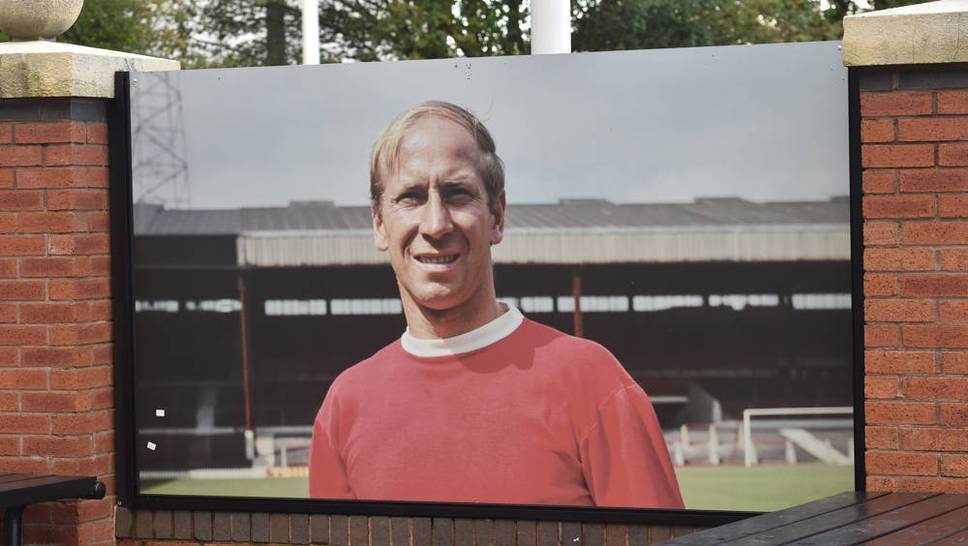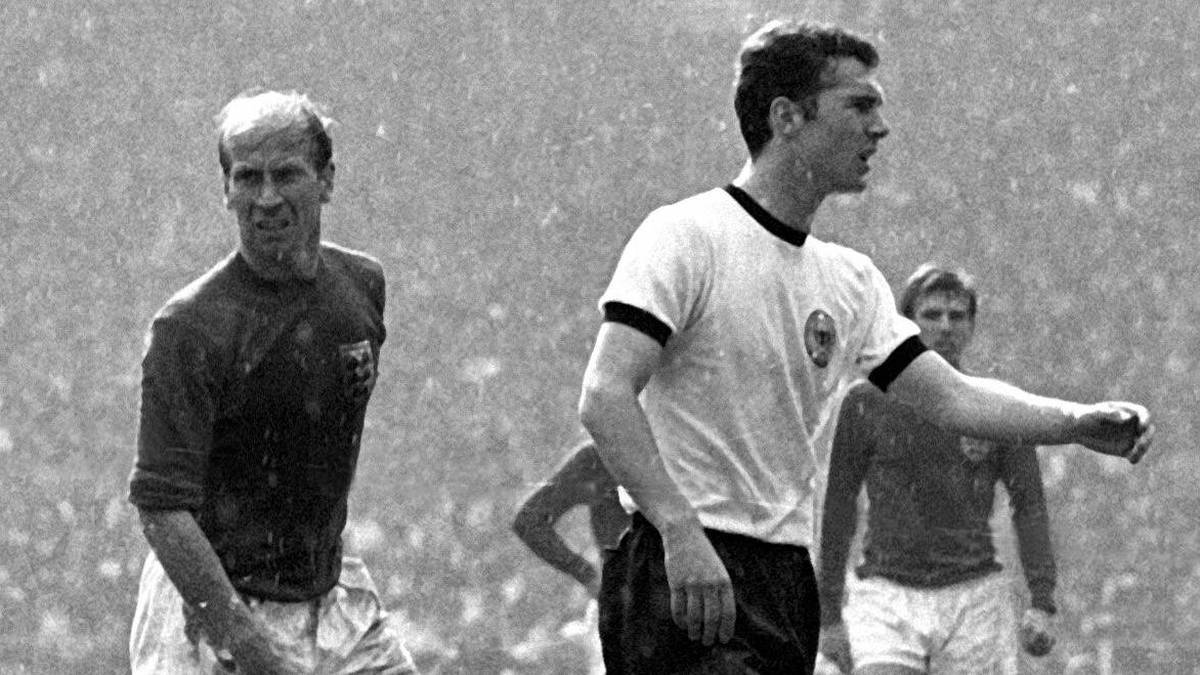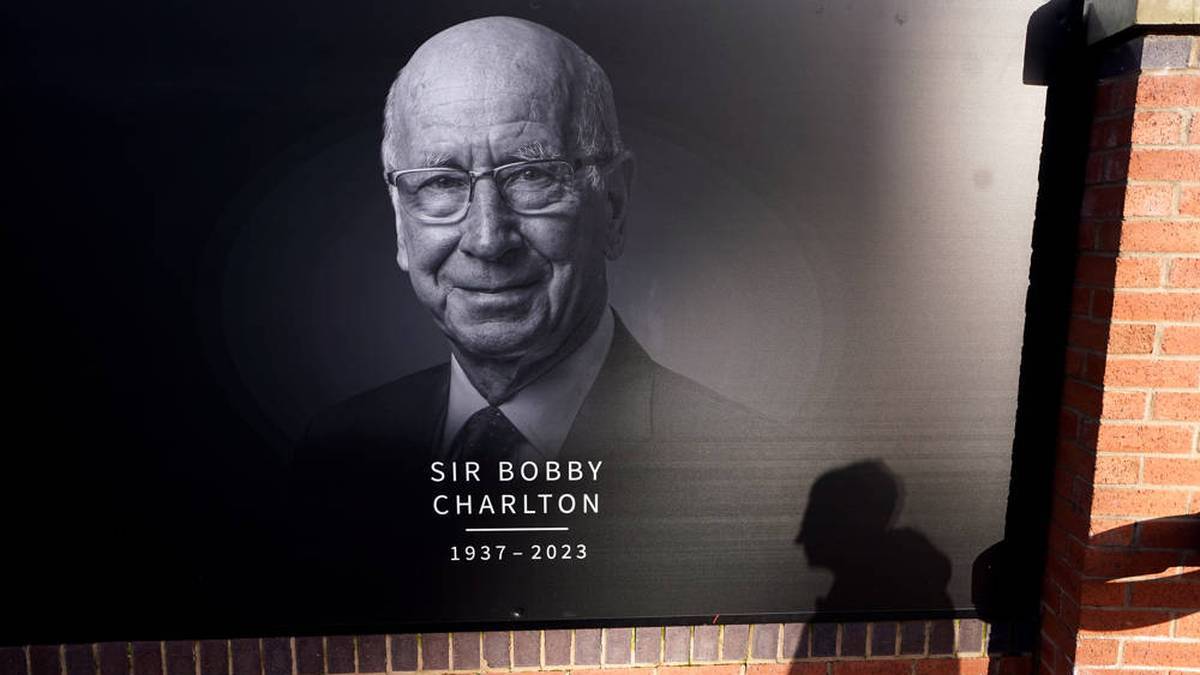
Two years ago today, Sir Bobby Charlton passed away. England’s 1966 World Cup hero was respected worldwide not only for his sporting class. A tragedy in Munich changed his life.
Two years ago today, the football world lost one of its greatest.
“Sir Bobby was a hero for millions of people, not only in Manchester or in Great Britain, but everywhere in the world where football is played,” said the announcement from Manchester United, reporting the death of the legend Bobby Charlton. It was no exaggeration.
1966 World Cup Hero, Icon of Manchester United
Charlton was considered one of the best, if not the best, English footballer of all time. In addition to his numerous successes with Manchester United, he led England in 1966 to its greatest triumph in history, when the “Three Lions” became world champions in their own country.
In the final, England defeated Germany 4-2 after extra time in the legendary Wembley final. In the same year, Charlton also became World Footballer of the Year.
“England could only beat us in 1966 because Bobby Charlton was a little bit better than me,” said Franz Beckenbauer, who passed away a few weeks after Charlton, once.

Bobby Charlton and Franz Beckenbauer in the 1966 World Cup Final at Wembley
Since Charlton, along with other legends like Wembley goal “scorer” Geoff Hurst, captain Bobby Moore, and his brother Jack Charlton, won the World Cup, the motherland of football has waited in vain for comparable heroes – although Charlton himself was unfamiliar with any hero worship.
“He is such a modest guy, he didn’t even know how good he was,” Hurst once said about Charlton on the BBC. And yet: “When you travel around the world, you come to areas where people don’t speak a word of English. The only thing they can say is: ‘Bobby Charlton.'”
Record Goal Scorer, Until Rooney and Kane Came
Charlton, born on October 11, 1937, as the son of a coal miner in the mining town of Ashington, scored 148 goals in 477 competitive matches for the Red Devils.
In addition, there were 106 international matches and 49 goals; Charlton was long England’s record goal scorer – meanwhile, Wayne Rooney and Harry Kane have surpassed him.
Queen Elizabeth II knighted Charlton in 1994, and since 2016, the South Stand at Old Trafford has been named after the club icon.
Aircraft Tragedy Shaped Charlton’s Life
The key moment in Charlton’s life, however, was not the triumph at Wembley on July 30, 1966; it occurred on that tragic February 6, 1958.
When the “Busby Babes” of United’s legendary manager Matt Busby crashed at Munich-Riem Airport, the 20-year-old Charlton was thrown from the plane – and survived. 23 of the 44 aircraft occupants lost their lives, including eight of his teammates.
“That day,” Charlton once said, “changed my life.”
Public Withdrawal After Dementia Diagnosis
After his active career, Charlton briefly tried his hand at coaching but then took other paths: he pursued various business projects, including football schools in several countries, and was also involved in many charitable projects. In 1984, he returned to Manchester United as a board member and prominent figurehead.
Charlton remained in public life until 2020, before withdrawing due to a dementia illness. On October 21, 2023, he died at the age of 86 from the consequences of a fall in a nursing home in the town of Macclesfield, where he had last lived.

A memorial poster for Bobby Charlton in Manchester